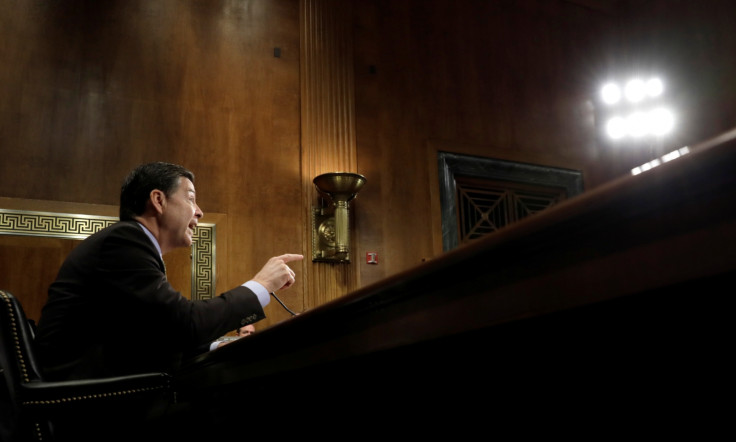FBI director James Comey feels 'mildly nauseous' to think he affected US election
Comey's infamous letter is often pointed to as a reason Hillary Clinton lost to Donald Trump.

FBI Director James Comey has told the Senate Judiciary Committee that it makes him feel "mildly nauseous" to think that he may have affected the outcome of last year's contentious US presidential election.
A letter released by Comey just 10 days before the election took place is often noted by commentators and pollster to be a reason that Democratic candidate Hillary Clinton lost the election to now-President Donald Trump.
The letter to Congress told lawmakers that the FBI believed it had found new emails related to Clinton's private email server scandal. Comey told the committee on Wednesday (3 May) that he had a choice to reveal or not reveal the information and that not to reveal it would have been "catastophic" – "not just to the FBI but well beyond".
"It makes me mildly nauseous to think that we might have had some impact on the election, but honestly, it wouldn't change the decision," Comey said, adding that it had been "one of the world's most painful experiences".
Democrat Senator Dianne Feinstein, who said she believed Comey's letter lost Clinton the election, said that while the FBI was making public pronouncements on the former secretary of state's emails, it was "noticeably silent" on an investigation into possible collusion between members of Trump's campaign team and Russia to influence the election's outcome.
In a rare public appearance on Tuesday, Clinton told the Women for Women event that she believed the reason she lost the election was "the intervening events in the last 10 days" – the letter from Comey and the release of a final batch of hacked emails from the Democratic National Committee on the website Wikileaks.
Representative Adam Schiff, the highest ranking Democrat on the House Intelligence Committee, said in a statement that Comey "chose to conceal the Trump investigation and reveal the Clinton investigation".
"The real choice the director faced was between abiding by DOJ (Department of Justice) policy against discussing investigatory matters around an election or ignoring that policy, between consistency in his handling of the two investigations or inconsistency." said Schiff. "Regrettably, for the bureau, department and the public interest, the director chose to violate sound policy, taking the path of unjustifiable inconsistency."
© Copyright IBTimes 2025. All rights reserved.






















